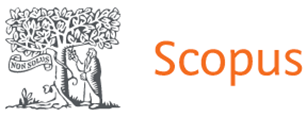Ukrainian Literary Naturalism in the Ideological and Aesthetic Reception of Lesia Ukrainka
DOI:
https://doi.org/10.15330/jpnu.8.2.56-64Keywords:
positivism, naturalism, romanticism, neo-romanticism, realism, literary movement, worldview-philosophical basis, zoomorphism, decadence, epic, dramaAbstract
The article deals with the study of the problem of Lesia Ukrainka's reception of the literary phenomenon of naturalism and the philosophy of positivism as its ideological basis. It also studies the way the poetess evaluated and looked at the achievements of European and Ukrainian writers representing this literary movement in the context of world and Ukrainian literary and cultural processes. The research also singles out the significance, national and individual-author features of the naturalism professed by I. Franko, A. Krymsky, E. Zola, Goncourt brothers, and F.Norris. The article focuses on the ideological and aesthetic importance of the postulates of naturalistic art for the development of the Ukrainian literary process. It also analyses different stages of the ideological and aesthetic reception of the naturalism doctrine in the perception of different generations of Ukrainian literary critics; it deals with Lesya Ukrainka's attitude to the naturalistic concept of a man and her reasoning about the compatibility of naturalism with certain genres and movements of literature. The article drives to the conclusion that Lesia Ukrainka recognizes the very fact of the existence of Ukrainian naturalism. It provides Lesia's vision on the usage of naturalistic elements in generally unnaturalist works and their combination with other elememts, sometimes representative of opposite to naturalism in their ideological and aesthetic postulates, such as romanticism, decadence, neo-romanticism, realism, etc. The article also provides an insight of Lesia Ukrainka's attitude to the problems of zoomorphic imagery, social involvement, physiological scientism in the literature of naturalism. It draws attention to the problem of the evolution of aesthetic consciousness of E. Zola, I. Franko, A. Krymsky, and Lesia Ukrainka herself. There is also place for the comparative analysis of the perception of naturalism in the literary-critical reception of different generations of Ukrainian and foreign writers.











